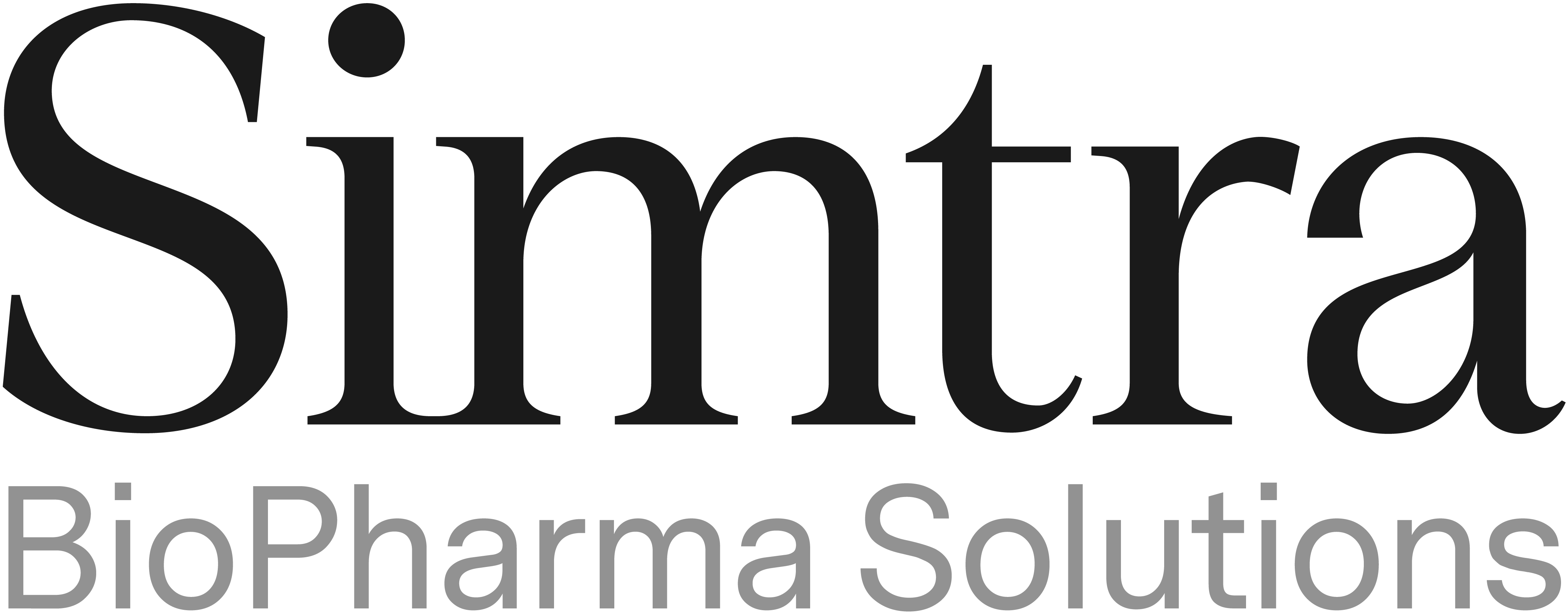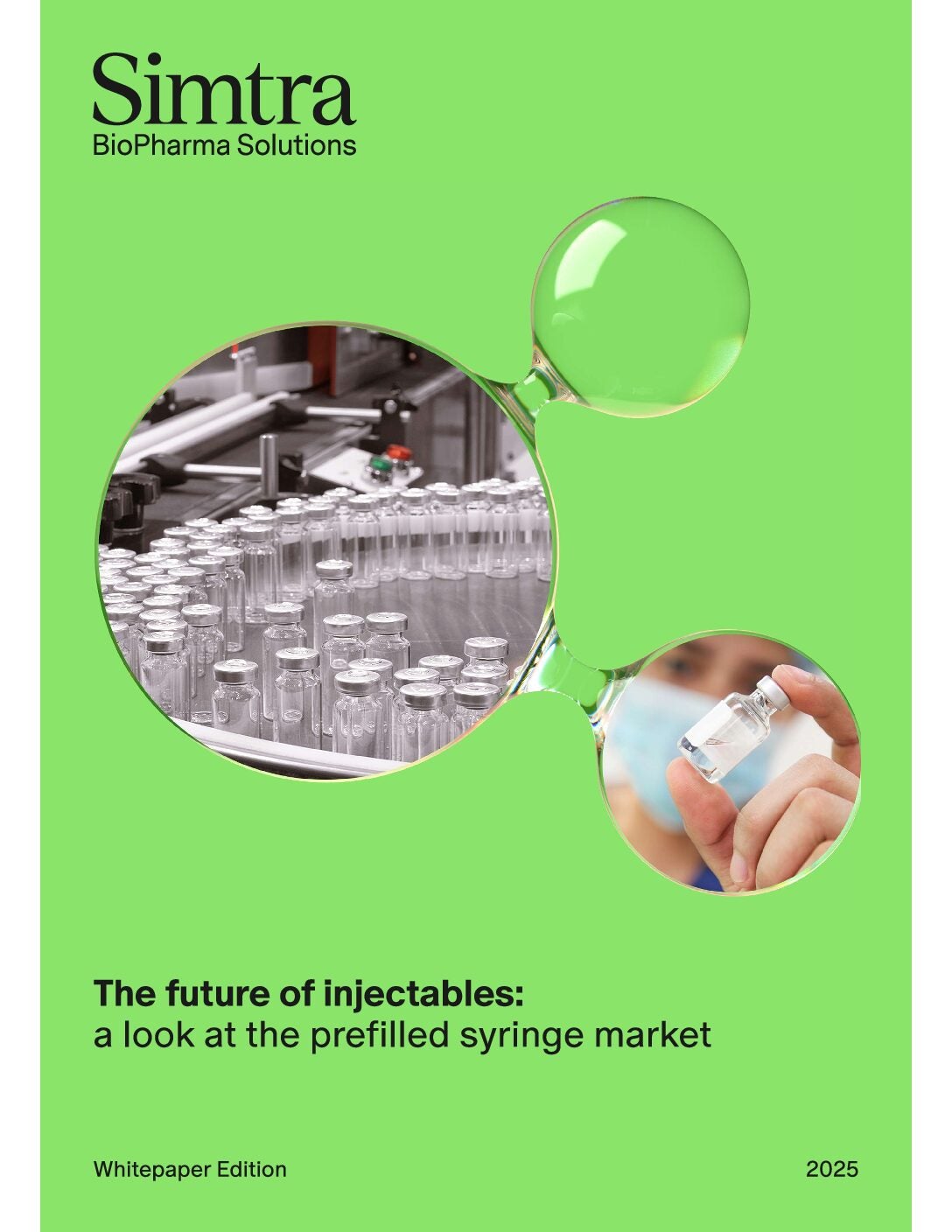
Prefilled syringes (PFS) have made up a substantial portion of the injectables packaging market over the last ten years. According to analysis by GlobalData, PFS received 17% of the US Food and Drug Administration (FDA) and European Medicines Agency (EMA) approvals for injectable packaging between 2012 and 2021.
Today, this trend looks set to continue, driven mainly by the increasing prevalence of chronic diseases such as type 2 diabetes, usually treated with a self-administered injection and expected to affect 234.15 million people this year.
The popularity of auto-injectors
A new report from Simtra BioPharma Solutions and featuring market analysis from GlobalData explores the lay of the land for PFS, taking an in-depth look of the future of injectables and examining the key drivers behind this rising demand, including the increasing prevalence of auto-injectors.
During Covid-19, for example, most vaccines used glass vials, mainly for fast rollout and logistical reasons. But the pandemic altered the landscape for injectables in another way, by creating a greater demand for remote patient monitoring (RPM).
First ramped up by lockdowns and then the need for social distancing, the increasing use of digital or decentralized clinical trials (DCTs) and direct-to-patient treatments gave pharma and biotech companiesan accelerated view of how RPM could work successfully. In fact, according to a 2021 survey conducted by GlobalData, 17% of respondents had adopted RPM to address clinical trial disruptions, while another 15% intended to switch to DCTs.
This shift led to a rise in auto-injectors, an injectable preferred by remote patients over traditional or prefilled syringes.
For self-administered injections, auto-injectors have various advantages. Their user-friendly button-press design avoids the possibility of needlestick injuries and partial doses, and they can be designed with a constant or variable dose, making them ideal for gradual increases.
Today, about half of the auto-injector products that are being marketed have been approved since 2017, indicating that this type of packaging is set to become even more popular in the future.
The rise in biologics
Another key trend explored in the report is the increase in biologics. According to GlobalData’s Pharma Intelligence Drug Database, the number of injectable products currently in the pipeline is rising rapidly.
While such drugs previously required intravenous (IV) delivery, more biologics are now being considered for at-home self-administration by patients with chronic conditions, such as autoimmune diseases and various cancers.
This has been made possible by formulations becoming more suitable for subcutaneous delivery. By increasing the dispersion and absorption of the injected drug, the volume can be reduced, making injections easier and more comfortable for the patient.
Additionally, research shows companies are deciding on the final delivery method for treatments earlier in the development process. By deciding this earlier, companies can reduce the number of expensive testing rounds, with savings made in timescales and costs.
Sustainability challenges
Across all sectors, sustainability remains a hot topic, and the pharma industry is no exception. When it comes to injectables, concerns have been raised about the environmental impact of single-use auto-injectors and prefilled syringes, which contribute to plastic waste and incur higher costs due to recycling issues, when compared with recyclable glass vials and syringes.
However, there is also a valid argument to suggest their user-friendly design may minimize administration errors, helping to reduce pharmaceutical waste and conserve resources.
More accurate dosing and fixed quantities in auto-injectors may reduce the need for surplus medication, while the popularity of these devices among patients may improve adherence, leading to less wastage through minimizing additional packaging and transportation costs. Reusable auto-injectors are also available.
How can CDMOs stay ahead of the game?
Contract development and manufacturing organizations (CDMOs) need to step up, and develop the expertise and capacity required to advance the prefilled syringe industry, which will allow companies to offer more user-friendly products.
Established CMOs with the most up-to-date knowledge of PFS developments can provide companies, particularly small biotech companies, with a variety of market possibilities.
Simtra BioPharma Solutions (Simtra), an independent CDMO, specializes in partnering pharmaceutical and biotech firms on the development and contract manufacturing of drug products for injectable pharmaceuticals. It is one of the largest contract manufacturers of PFS in the world.
Simtra is currently expanding its sterile fill/finish manufacturing facilities in Halle Westfalen, Germany, and Bloomington, Indiana USA to meet growing client needs.
With a $100 million (£86 million) investment, the facility will include state-of-the-art equipment for filling vials and prefilled syringes, and additional facilities for lyophilization (freeze-drying), and rotary position and peristaltic filling mechanisms. Additionally, a new line will offer the flexibility to meet the growing demand for aseptic syringe filling. Construction of the new facility is expected to be completed in 2024.
Meanwhile, further developments have taken place at Simtra’s manufacturing site in Bloomington, Indiana, where it has just been announced that a $250+ million investment to expand sterile fill/finish line is taking place. The new state-of-the-art building will be constructed to house two high-speed automated isolator syringe fill lines and a new high speed isolator vial line equipped with three 30 square meter lyophilizers. The expansion will also include the addition of a dedicated clinical line equipped to support Simtra’s growing development/clinical business.
Download the whitepaper below for an in-depth, data-driven analysis of the future of injectables in 2024, featuring expert insight from Simtra BioPharma Solutions and market research from GlobalData.



